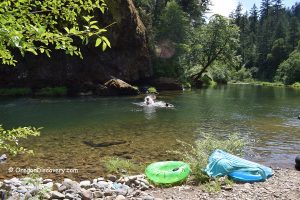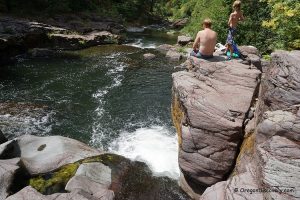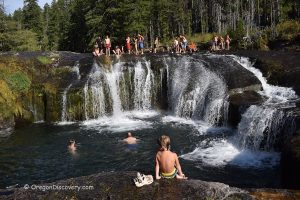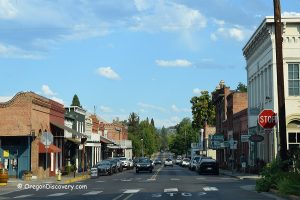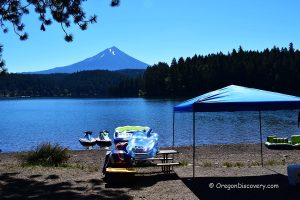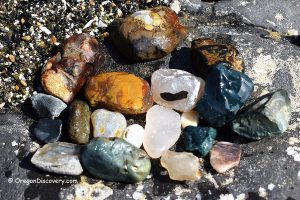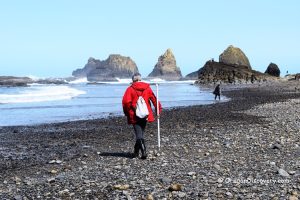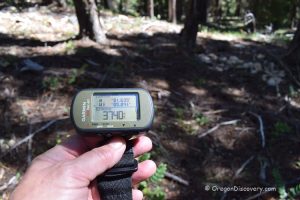
• Crater Lake National Park is Oregon's only national park
• Crater Lake is the deepest lake in the United States
![]()
![]()
![]()
Crater Lake National Park is a must-visit destination in Oregon and the state's only national park. It encompasses over 50,000 acres of pristine old-growth forest, with Crater Lake serving as the park's crown jewel.
Crater Lake is the deepest lake in the United States, with an astonishing depth of 1,943 feet. It also ranks as the 7th deepest lake in the world.
The lake is celebrated as 1 of the 7 Wonders of Oregon for its scenic appeal, geological origin, and cultural significance. Crater Lake is so significant that Oregonians can proudly display a "Crater Lake" license plate as a tribute to this natural treasure.
However, the allure of Crater Lake extends beyond its scenic views, as you can explore the lake and its surroundings in many ways. Take a boat tour, hike a network of trails, cruise around the Rim Drive, or catch a rainbow trout!
How Crater Lake Was Formed?
The powerful eruptions of Mount Mazama created Crater Lake eight thousand years ago. The volcano's eruption emptied the magma chamber, collapsing the volcano's top, thus forming the caldera. Flowing lava sealed the caldera's bottom.
Water from springs, snow, and rainfall filled the six-mile-wide caldera, creating the lake. Interestingly, no rivers flow in or out of the lake, so the water here is entirely composed of rain and snowmelt.

Crater Lake Discovery
John Hillman, Henry Klippel, and Isaac Skeeters stumbled upon Crater Lake on June 12, 1853, while on an expedition for the mythical "Lost Cabin" gold mine. Struck by the watercolor, Hillman declared it the bluest lake he had ever witnessed, prompting Skeeters to name it Deep Blue Lake.
This breathtaking discovery ultimately gained national recognition when President Roosevelt designated the Crater Lake area as America's sixth national park in 1902.
Crater Lake In Native American Tradition
The Klamath Tribe's oral tradition recounts how their ancestors witnessed the catastrophic collapse of Mount Mazama. Native lore speaks of a fierce battle between Skell, the sky god, and Llao, the god of the underworld. Though Llao was defeated, the battle ultimately led to the collapse of Mount Mazama, resulting in the formation of what is now known as Crater Lake.
Crater Lake was so significant that the Klamath people would go there for vision quests, climb the caldera walls, and perform other challenging tasks as a rite of passage.

Best Time to Visit Crater Lake
Crater Lake is open year-round, although heavy snowfall can limit access; the north entrance is closed from October to June. There are two visitor centers (Steel Visitor Center and Rim Visitor Center) with souvenir stores, historic Crater Lake Lodge, two restaurants, and one convenience store.
The Rim Drive Points
Rim Drive is a 33-mile (53 km) loop route around Crater Lake, featuring nearly 30 pullouts along the road.
Phantom Ship, near the southern shore, is a remnant of a lava flow that rises 160 feet above the lake.
Llao Rock, named after the fallen underworld God, is a lava formation rising 1850 feet above the lake.
Wizard Island is a cinder cone island 760 feet above the lake's surface. You can book a boating tour that includes a hike to explore the area.
The Pinnacles are needle-like fossil fumaroles, each about 100 feet (30 m) tall, rising from the canyon wall in Sand Creek Canyon.
Pumice Castle is an orange pumice rock formation resembling a medieval castle 1.1 miles west of the Cloudcap Overlook.
Vidae Falls is a cascading waterfall you can see between Phantom Ship Overlook and Park Headquarters. It drops 100 feet over a series of ledges, reaching a rocky slope and running to the south of Mt. Mazama.

Top Things to Do at Crater Lake
Kayaking and Canoeing
Kayaking and canoeing are fantastic ways to explore the lake. The caldera walls are very steep—almost vertical in some places—so you must use a designated canoe trail to access the water safely.
Boating
Private boats are not allowed at Crater Lake. The steep caldera walls make launching a boat extremely difficult and dangerous. Rockfalls are common, adding to the hazards.
Fishing
Crater Lake is home to kokanee salmon and rainbow trout. It's unclear whether native fish ever lived in the lake, but several non-native species were introduced—and two have thrived. Always check current fishing regulations before casting a line.
Swimming
The lake never gets warm due to its high elevation of 6,178 ft (1,883 m). Water temperatures range from cold to chilly depending on the season, but that doesn't stop some enthusiasts from enjoying a refreshing dip. Cleetwood Cove is the only authorized swimming area at the lake.

Hiking
There are 90 miles of trails in the park, including routes that lead to the summits of high points:
- Mount Scott - 8,929 feet
- Hillman Peak - 8,151 feet
- Garfield Peak - 8,060 feet
- Cloudcap - 7,994 feet.
Some trails are challenging, but there are easier options too, like the ½-mile Castle Crest Wildflower Garden Trail.
Nature Viewing
The park is home to over 570 species of plants and trees, including hemlock, pine, and various types of fir. Approximately 200 species of birds and large mammals, including black bears, elk, and deer, also inhabit the area. It's an excellent place for nature viewing and birdwatching.
Boat Tours
You can sign up for a boat tour around the lake and even visit Wizard Island. Some tours stop at the island, while others circle the lake. Tours are available from July to September.
Crater Lake Events
The annual Crater Lake Rim Runs and Marathon takes place in the second week of August.
Crater Lake Ride the Rim events are held each September. During these events, East Rim Drive is closed to motor vehicles and is accessible only to bicycles and pedestrians.
Crater Lake National Park: Camping, Lodging & Vacation Rentals
There are two lodging options within park boundaries, Crater Lake Lodge and The Cabins at Mazama Village. Reservations should be made months in advance via the National Park Service website.
Other affordable accommodations are available in nearby hotels or guesthouses a few miles outside the park.
Lodging at the Crater Lake National Park
Affordable vacation rentals for short and long term stay at the Crater Lake National Park
Crater Lake National Park | Facts
Open: Seasonal closures due to snow and icy conditions
Managed by: National Park Service
Amenities & Services: Information centers, gift shop, store, restaurant, picnic tables, and hiking trails
Activities: Hiking, canoeing, kayaking, swimming, biking, fishing, scenic viewpoints, boat tours
Day-use fees: Yes; National Park Pass; Senior or Military Passes
Dogs: Yes
Crater Lake National Park is located:
- 88 miles northeast of Ashland
- 178 miles southeast of Eugene
- 239 miles southeast of Salem.
Adventures Nearby
Directions to Crater Lake National Park
From i-5 Exit 188 in Eugene,
- Follow OR-58 for 87 miles to US-97
- Continue on US-97 South for 52.3 miles to OR-422
- Turn right onto OR-422, and then after 3 miles, turn right onto OR-62
- Continue northwest on OR-62 to Munson Valley Road for 24.5 miles
- Turn right to Volcanic Legacy Scenic Byway/Rim Drive and follow it for 4 miles.
I-5 Exit 138 in Roseburg is also a good option if you live north of the city.
If you are coming from the southern portion of I-5 (Ashland, Medford, or California), take Exit 14 in Ashland onto Route 66 (then Route 140 and Route 62) or Exit 30 in Medford onto Route 62.
Phone: 541-594-3000
You May Also Like

